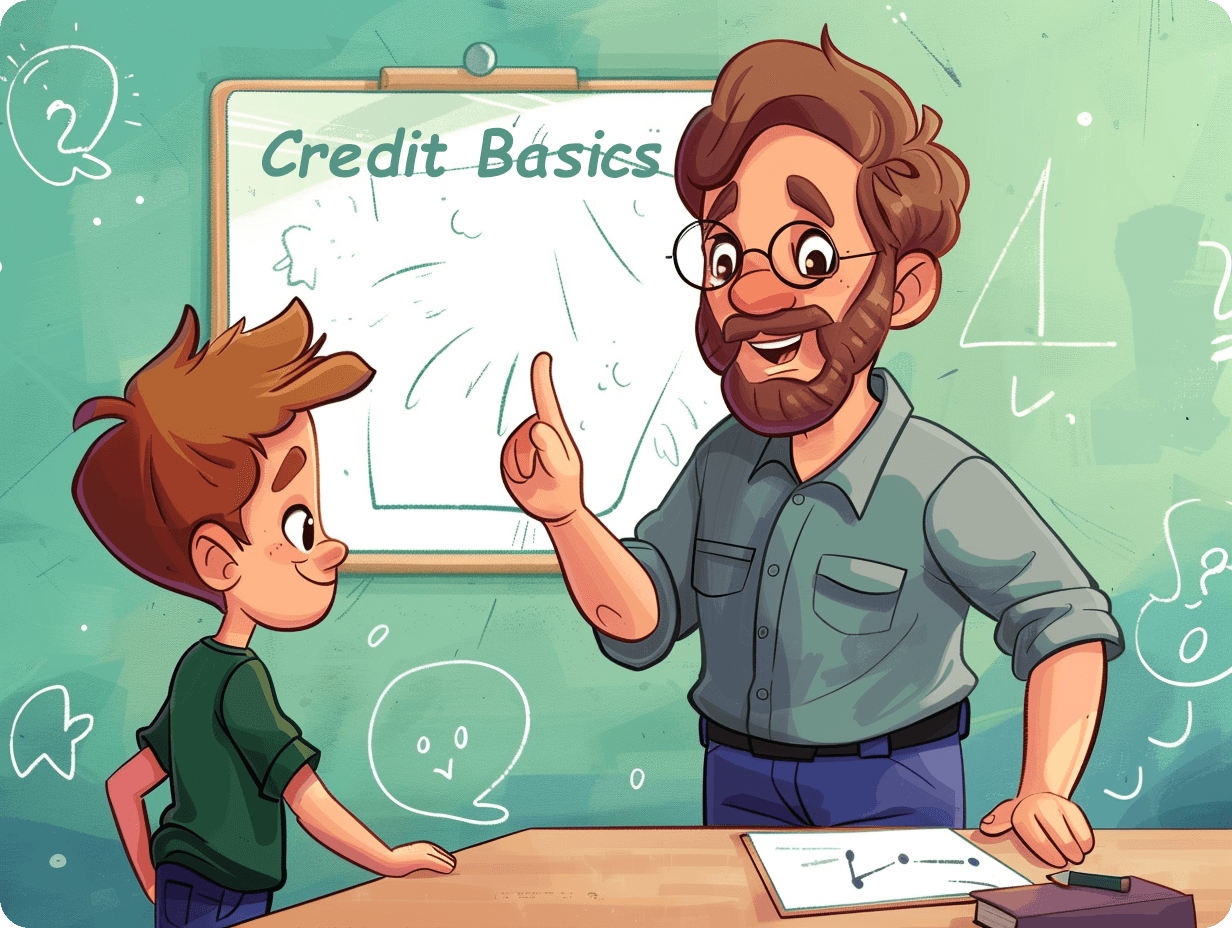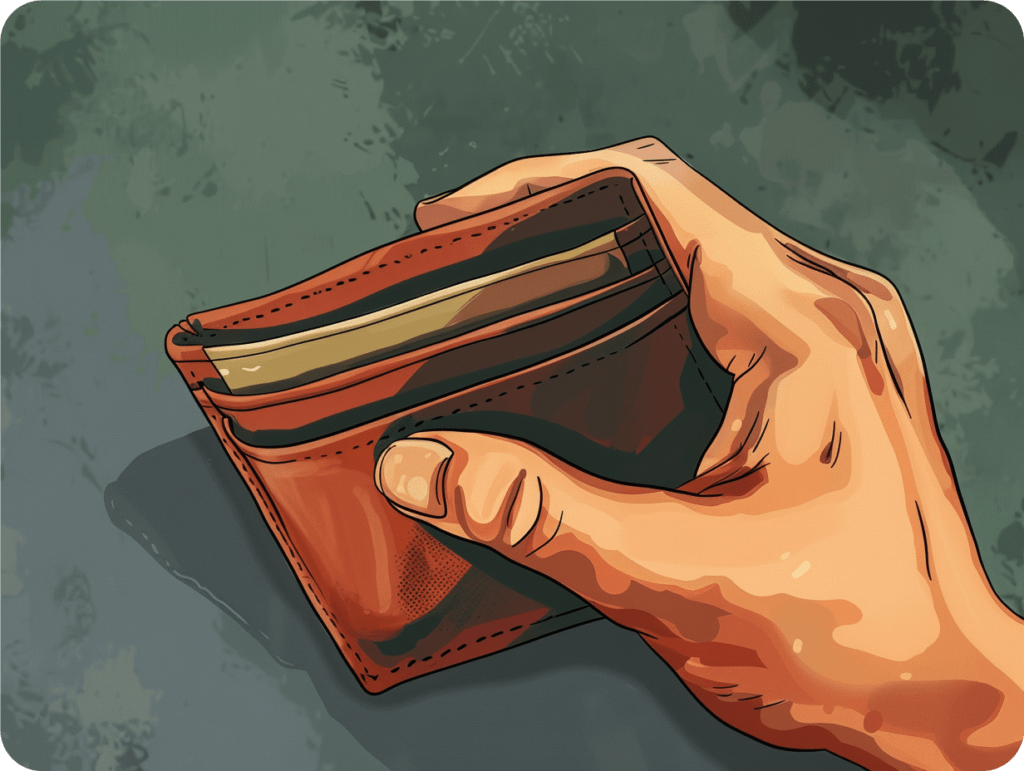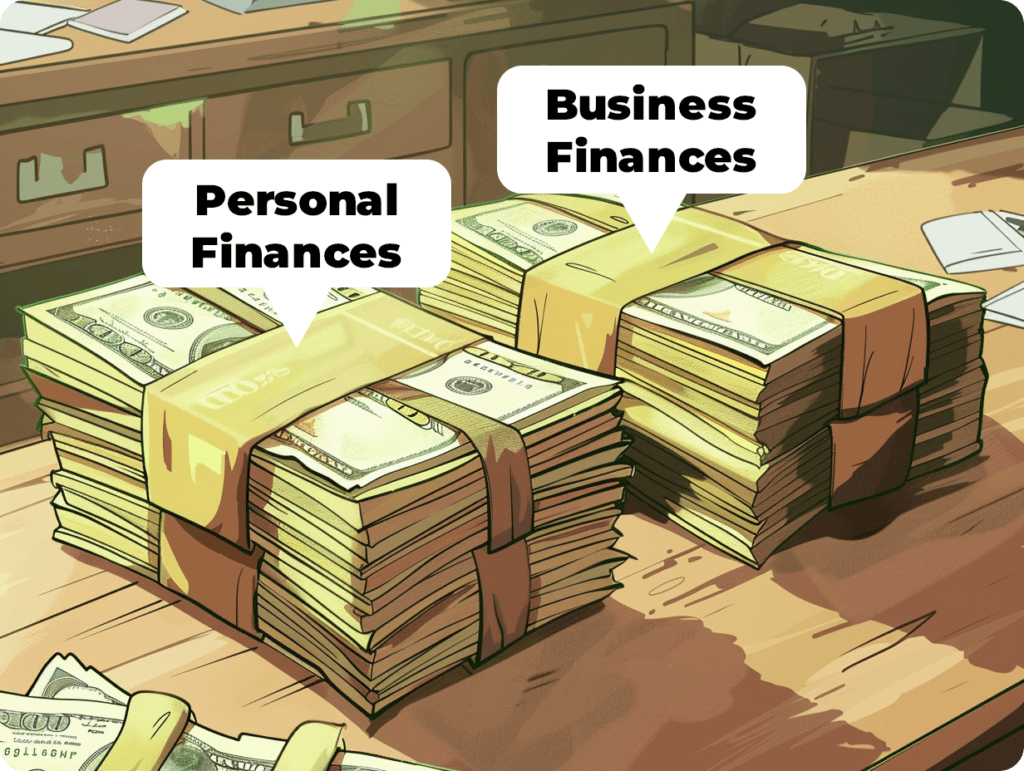- Blogs
- /
- How To Build Credit For Your Child
How To Build Credit For Your Child

Summary
Financial literacy is now necessary for youngsters to navigate the future; it is no longer an adult luxury.
Contrary to popular belief, building credit doesn’t have to be complicated or daunting or be for only adults. Laying the groundwork now for your kids can help them when they’re ready to fly solo financially. It can equip them with essential tools for financial success.
This guide covers the key actions parents and guardians can take. How they can help their kids build good credit and prepare them for a more promising and secure financial future. Read on to discover steps to take to build credit for your child.
Key Takeaways
- Building credit early can set children up for financial success in the future. This process requires careful planning. It needs parental guidance and responsible money habits from a young age.
- Good credit scores lead to better loan terms and lower interest rates. They also bring increased financial opportunities in adulthood.
- Early financial education empowers children to make informed financial decisions.
- Responsible credit card usage and on-time payments are crucial for building good credit.
- Consider the child’s age, maturity level, and interest in personal finance before starting.
- Make sure the child knows the duties of managing credit. Also, make sure they know the results of misuse.
- Encourage responsible spending and saving habits from an early age.
- Teach them about budgeting, prioritizing needs over wants, and avoiding impulsive purchases.
- Emphasize the importance of checking credit reports regularly and reporting any errors.
- Open communication and trust are essential when guiding children towards responsible credit management.
- Monitor their credit activity closely, especially when using authorized user cards.
- Consider co-signing only after exploring other options and discussing the risks involved.
Credit Basics

Credit cards and debit cards serve different purposes. Credit cards allow borrowing money, while debit cards use personal funds. A credit card helps build a credit history, unlike a debit card, which does not contribute to this aspect. Moreover, credit cards often offer rewards and benefits compared to debit cards.
Understanding the difference between credit and debit is crucial. Credit can lead to better financial opportunities for your child. You need to teach them how each type of card works. And how their choices affect their finances.
Building good credit is vital for later aspects of your child’s life. Having a solid credit history can result in lower interest rates. This will be useful when they apply for loans or mortgages as adults. Good credit increases their chances. It helps them get approved for rental applications and job opportunities.
Teaching your child about credit early on gives them power. It lets them make informed choices about their finances as they grow. Learning to manage money well creates a strong foundation. It sets them up for later success.
Remember, paying bills on time is critical. It plays a significant role in building good credit for your child. Late payments can hurt their credit score. This will hurt their ability to get good loans. It will also hurt other financial opportunities later.
Encouraging your child to set up automatic payments helps. It ensures they never miss due dates. It shows lenders that they are responsible and reliable. Emphasize the need to pay off the balance each month. This practice avoids interest and shows responsible financial behavior.
Early Financial Education
Teaching children how to build credit is crucial for their financial future. One way to start is by instilling saving habits early on. Encourage your child to save money by setting goals, like saving for a toy or a trip. Opening a savings account can also help them learn about banking and saving.
Lead by example when discussing family budgeting with your child. Teach them how to create a budget based on their income and expenses. Help them understand the difference between needs and wants.
Needs include things like food and clothing. Wants, in contrast, are things like toys or video games. By involving them in these talks. They can grasp the value of money from an early age.
Another essential aspect of financial education is teaching kids about credit usage. Educate your child on responsible credit card use – only spend what you can pay off monthly. Explain that a low credit card balance helps maintain a good credit score. Discuss interest rates. They need to understand how carrying a balance creates debt. It also hurts finances.
Right Time to Start
1. Signs of Readiness
When building your child’s credit, watch for signs they are ready. Look for behaviors. These include handling money well. They also include understanding concepts like budgeting and saving and showing interest in learning about credit. You must assess their level of responsibility. Also, you must assess their ability to manage money well.
Your child should have a stable income or allowance. It should cover credit card payments. This ensures they can meet financial commitments without running into difficulties. By gauging these factors, you can determine if your child is ready to build credit at an early age.
Consider not only their readiness but also their interest in finance. Both are vital. Suppose they show enthusiasm for learning about credit management and financial literacy. In that case, it shows they are motivated. They can handle the duties of having a credit card.
2. The Age Factor
Before we discuss how to build credit for your child, check the legal age for getting a credit card in your location. Some places permit minors to have credit cards with parental consent. They also allow them to be authorized users on their parents’ accounts.
Understanding the age limits that credit card issuers set is also vital. It helps you decide if your child is ready for financial independence. Remember, age affects eligibility. But maturity level should also be a significant factor when deciding if they are ready to handle credit.
Reaching the minimum age requirement does not mean your child is ready to manage credit well. People have varying maturity levels. So, it’s crucial to check if they have the needed traits and understanding. Do this before introducing them to this aspect of personal finance.
Establishing Credit History

1. Opening Accounts
Helping them open a checking account is crucial. It gives them essential banking knowledge. They get this by understanding deposits, withdrawals, and using debit cards. Teaching them to compare bank statements and watch online activities instills responsibility early.
Encourage your child to track spending. It is important to keep a positive balance in a checking account. Also, have them set up alerts for low balances or suspicious transactions. This will promote financial awareness. This is the foundation for sound financial habits.
Opening a savings account for your child nurtures saving habits. Explain how interest on savings grows over time. This encourages regular deposits into the account. Discussing the benefits of saving toward long-term goals is also essential. This could be for things like college or a car. It instills goal-setting skills early on.
Furthermore, teach your child about different savings accounts. Explain their unique features. This will give them knowledge about their saving options. Understanding these differences can help guide their decision-making.
2. Authorized User Addition
Adding your child as an authorized user on one of your credit cards can start their credit history. Being added as an authorized user means their credit report will also show any credit activity. You can teach them to use credit cards responsibly. Do this by closely watching their spending.
Setting clear rules and expectations for using the authorized user card is vital. They ensure that users grasp the importance of responsible borrowing early on. It’s vital to explain that any bad actions using this shared credit line could hurt your and your child’s credit scores.
Building Good Credit Early
1. Co-signing Credit Cards
Co-signing a credit card for your child means you share responsibility for the debt. It can help them build credit but has risks if they miss payments. Communication and trust are vital in co-signed agreements, so ensure these are strong. Before co-signing, explore other options to avoid potential pitfalls.
Consider student or secured credit cards as alternatives. Student cards cater to college students with little credit history. Secured cards require a cash deposit as collateral. Compare card offers, fees, and interest rates. Find the best one. It must report to major credit bureaus.
Understand different lenders’ policies on issuing credit cards to children. Some have age restrictions or specific requirements for minors applying for credit cards. Be aware that extra documents or parental consent will be needed. You may need them during the application.
Compare different lenders’ interest rates, annual fees, and rewards programs. Do this before deciding to align with your child’s financial goals.
2. Student or Secured Cards
Student or secured credit cards allow young people to build credit. They can do this responsibly early in life. Student cards are for college students. Those who may not have a long financial track record yet but want access to credit cards. They don’t want to need a cosigner.
When users use secured card offers, they place a cash deposit upfront as collateral against their line of credit. This reduces risk for the lender. It helps them take their first steps into managing borrowed money wisely.
Comparing multiple offers is key when choosing either type of card. You must look at the fees for using the card and the interest rates for carrying a balance. These factors can greatly impact your long-term financial health.
Consider which type of card suits your child’s needs and circumstances. It might be student-specific for those pursuing higher education after high school. Or it might be secured, requiring an initial deposit. Always prioritize features that help build good credit behavior over time.
3. Understanding Lender Policies
Understanding lender policies is crucial. Different lenders have specific rules about issuing credit cards to minors. Some may require additional documentation or parental consent during the application process.
Researching interest rates, annual fees, and rewards programs from various lenders can help you choose well. You must choose a lender that fits your child’s financial goals and your preferences. For example, choosing a card with such benefits would be best. This is if your child aims to save money with cashback.
Comparing different lenders helps you find the best fit for your child’s needs. It also ensures responsible credit building. By knowing these policies, you can guide your child. You can guide them to establish good credit habits early in life.
- Pros:
- Helps in making an informed decision
- Aligns with financial goals
- Encourages responsible credit building
- Cons:
- Requires thorough research
- May involve complex terms
Managing and Monitoring Credit
Checking Credit Reports
Teaching your child about checking credit reports is crucial. They must understand how to get major bureaus’ free annual credit reports. Guide them in checking these reports for errors. Help them spot signs of fraud. Explain the impact of negative information on their credit score and how to rectify it. Encourage them to report any discrepancies or suspicious activities promptly.
It’s essential to highlight the significance of responsible credit management with your child. Discuss the long-term effects of poor credit decisions. Teach them to prioritize repaying debts and avoid excessive borrowing habits early on. Developing sound financial habits at a young age will create a strong foundation. This foundation will support their credit health.
Teaching your child to manage their credit well can have lasting benefits. It equips them with skills that will serve them well as adults.
Helping your child grasp that smart money choices today will help them make better opportunities tomorrow. Emphasize that making a good credit history is an ongoing process. It needs diligence and discipline.
Significance of Management
Discussing with your child is key. You must talk about how certain actions can affect their future finances. This is vital when teaching about responsible money management at an early age.
Using real-life examples helps. It makes these ideas easier for kids to relate to and understand. It’ll shape their attitude towards money as they grow older.
Using simple words to explain complex financial terms or processes helps children. It helps them grasp key ideas. It prevents them from feeling overwhelmed by jargon.
How to Build Credit for Your Child: Practical Steps to Building Credit

1. Initiating Credit Building
Starting the credit-building journey for your child involves guiding them through essential steps. Help them grasp what contributes to a good credit score. Encourage them to begin with manageable debts, like a secured credit card or student loan. Emphasize the significance of making timely payments and maintaining low credit utilization.
Teach your child about monitoring their progress and celebrating achievements together. By instilling these habits early on. You set a strong foundation for responsible future money behavior.
Consider this example. If your child gets a part-time job in high school or college, they can start building credit. They can do this by applying for a secured credit card and using it responsibly.
2. Adding as Authorized User
Another good method is to add your child as an authorized user on one of your existing credit cards. This allows their credit activity to be reported on their credit history. However, monitor their spending closely.
Setting clear guidelines and expectations regarding using the authorized user card is vital. Remember, bad actions on this account can hurt you and your child’s credit scores.
For instance, you could make rules. For example, only use the authorized user card for specific expenses. Or, set monthly spending limits.
3. Researching Cards for Children
Explore various options when researching suitable credit cards for children or young adults. Look for cards with few fees and fair interest rates. They should also have educational resources. These will help young users learn about finance.
Compare the reward programs of different issuers. Find one that matches your child’s financial goals. Reading reviews from trusted sources can help you decide. They’ll help you choose which card suits your child best.
Importance of Saving and Budgeting
Building your child’s credit requires teaching them the value of budgeting and saving. By saving money, people may avoid using credit cards or loans and have money set aside for big expenditures and emergencies.
By developing good spending habits early, they can build a strong foundation. It will help them manage money wisely in the future. It also fosters financial responsibility at a young age.
Furthermore, by teaching these values early, you shape their mindset. You guide them toward money management and building good habits for the future.
By using a budget, they may better control their expenditures and prevent overspending, which can result in debt. You can prepare kids for future financial success and smart credit management by establishing these habits early on.
Teaching kids about saving prepares them for adulthood. It empowers them to make informed financial choices in life’s stages.
Educating on Credit Significance
Building your child’s financial literacy requires teaching them the value of credit. Their ability to comprehend credit enables people to grasp the long-term effects of their financial choices. It gives individuals the ability to make wise decisions when it comes to borrowing, saving, and spending.
You can provide them with the knowledge they need to establish and preserve good credit by teaching them about credit reports, interest rates, and credit scores. They will be put on the path to financial independence and proper financial conduct by this instruction.
Impact on Scores
Credit card usage affects credit scores. Timely payments maintain good scores. Keeping balances low is vital. Opening new accounts may temporarily lower scores but enhance them in the long term. Responsible credit behavior boosts credit scores significantly.
Understanding how credit cards impact credit ratings is crucial for financial health. Making timely payments ensures a positive score. Explaining credit utilization ratios to your child helps them understand. It shows the importance of keeping balances low.
Teach children about credit. Explain that opening new accounts can hurt their scores at first. But, they can help it over time with responsible use.
Closing Thoughts
You’ve learned the basics of building your child’s credit. You’ve learned the essentials, from understanding the basics to using advanced strategies. Starting early and instilling financial literacy can set them up for success.
Remember, it’s not just about establishing credit but also about managing it wisely. By teaching your child about credit, you empower them. They can make wise financial choices in the future.
Take the steps outlined here. Monitor their progress and encourage good financial habits. Building credit is a journey that requires patience and diligence. Equip your child with the tools they need to navigate the world of credit confidently. Start today, and pave the way for a financially secure tomorrow.
FAQs
Can you build credit for your child?
Yes, you can build credit for your child. You can add them as an authorized user on your credit card. You can open a joint account or get them a secured credit card. You can also help them secure a credit builder loan. These methods require responsible credit management. They can help your child build a good credit history.
How do you build credit for your child?
You can build credit for your child. You can add them as an authorized user on your credit card. You can open a joint account with them. You can help them get a secured credit card. You can assist them in getting a credit builder loan. Responsible credit management is crucial. Teaching your child about credit and borrowing is essential. Starting early and maintaining good habits can help them establish a positive credit history.
Is it essential to educate children about credit from an early age?
Absolutely! Teaching kids about credit early on builds a strong foundation. It sets them up for their financial future. It helps them understand the value of money. It teaches responsible spending habits and building a good credit score over time.
When is the right time to start teaching children about building credit?
The best time to start teaching children about credit is in their teenage years. This allows them to grasp basic finance. They can develop healthy money skills before adulthood.
How can I help my child establish a solid credit history?
To help your child establish good credit, consider adding them as an authorized user on your card. Also, encourage responsible spending and stress the importance of paying bills on time.
What can parents do to teach their kids about building good credit?
Parents can lead by example. It can involve children in budgeting discussions. This includes setting savings goals. It also includes explaining real-life scenarios about borrowing and repaying money. These can be effective strategies.
Why is monitoring and managing one’s credit important when building a positive credit history?
Checking your child’s or teen’s credit often helps find errors or fraud. It also lets you both track progress in building good financial habits. By staying informed about their financial status early, you empower them for the future.
Our Latest Blogs:

ThisIsJohnWilliams

ThisIsJohnWilliams
FREE Strategy Session to Fix Your Credit Blogs / Facebook Twitter Linkedin Instagram Share Summary Did you know that...

ThisIsJohnWilliams

ThisIsJohnWilliams

ThisIsJohnWilliams
FREE Strategy Session to Fix Your Credit Blogs / Financial stability is the cornerstone of well-being, so understanding the...






